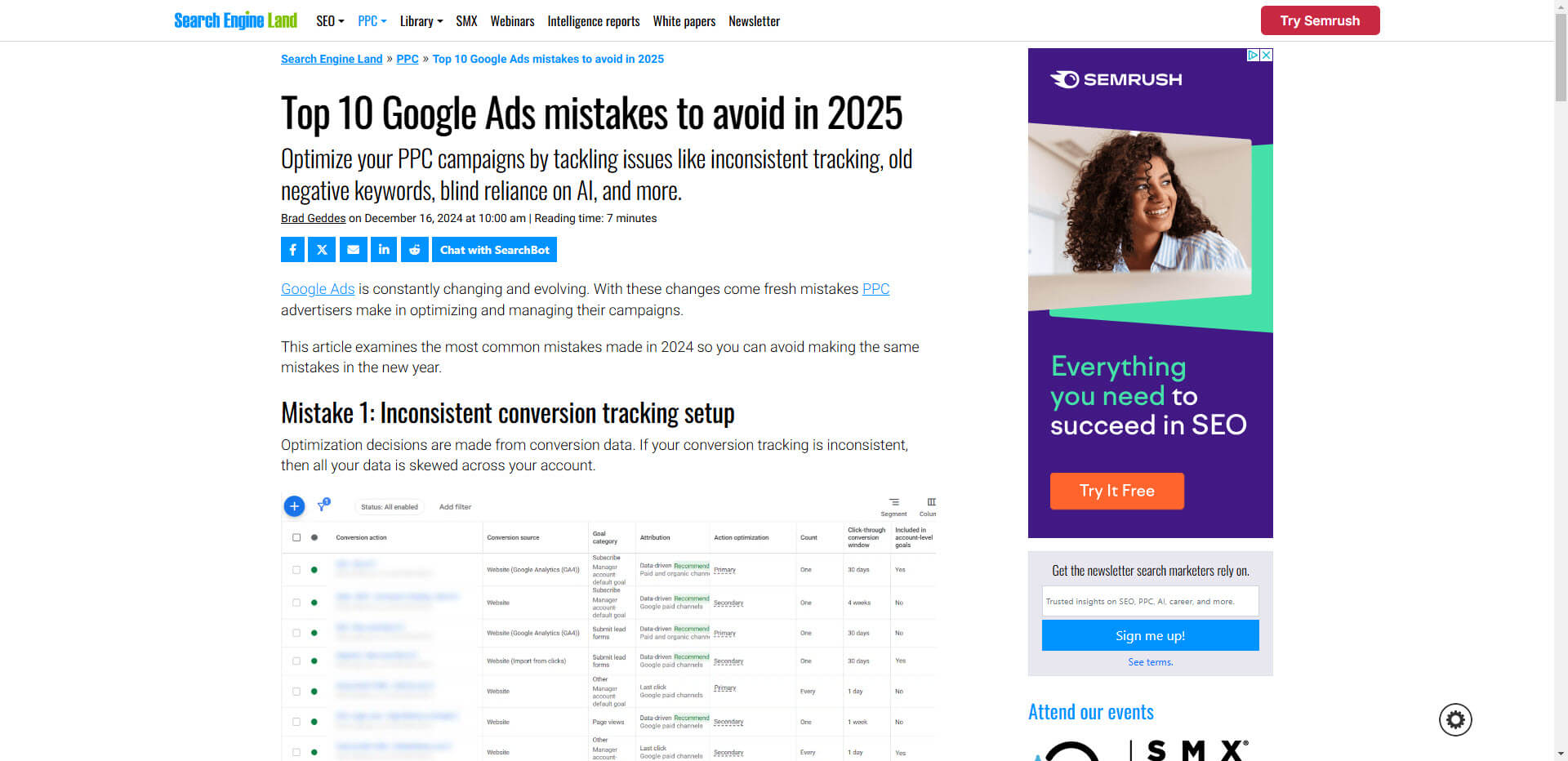Optimising your PPC campaigns is crucial for success, and avoiding common errors can significantly improve your results. This article, drawing on expert insights, highlights the top 10 Google Ads mistakes to avoid in 2025.
Inconsistent Conversion Tracking
One of the most critical errors is an inconsistent conversion tracking setup. Conversion data drives optimisation decisions; therefore, if your tracking is inconsistent, your data is skewed across the account.
Inconsistent attribution methods, count types, and conversion windows make it difficult to understand the value of each click.
It’s crucial to ensure your conversion data is consistently applied across your account to accurately measure the value of each click.
Ignoring Exact Match
While broad match has been heavily promoted by Google, ignoring exact match is a mistake.
- Exact match consistently remains the highest-converting match type for many accounts.
- It’s important to include exact match among your keyword match types.
Inconsistent Campaign Settings
Campaigns are often created at different times, which can lead to inconsistent campaign settings.
- Inconsistent excluded regions, ad scheduling, and bid strategies across campaigns are common.
- Regularly check your campaign settings to ensure consistency.
Overemphasising Ad Strength
Ad strength is not directly related to your quality score.
- Lower ad strength ads often have higher conversion rates than high ad strength ads.
- Don’t be concerned about achieving high ad strength, but focus on what works for your account.
Not Adding Top Search Terms as Keywords
If you don’t add top search terms as keywords, multiple keywords can show ads for the same search query, which leads to inconsistency.
- This can lead to inconsistent marketing when the same search term shows ads from different ad groups.
- Additionally, Performance Max campaigns might dominate your search campaigns if you don’t add search terms as keywords, which is not ideal because they often have lower CTRs and conversion rates.
- Add your top search terms as keywords to ensure users see the correct ad group, ad, and landing page.
Using Broad Match with Non-Target CPA/ROAS Bid Methods
Broad match has its uses, but your bid strategy significantly impacts its effectiveness.
- Max bidding aims for maximum conversions or revenue, regardless of cost, while target bidding focuses on a specific target you set.
- Broad match often performs poorly with max bidding, but is generally OK with targeting options.
- Adjust match type usage as you change bid strategies.
Relying on Old Negative Keyword Lists
Using old negative keyword lists without checking them can cause issues.
- Negative keyword conflicts occur when you block your keywords from showing due to a negative keyword.
- Regularly audit your negative keyword lists to make sure you are not blocking your new keywords.
Blindly Accepting Google Recommendations
Google’s recommendations are not always in your best interest.
- Many recommendations are controversial, and some can harm account performance.
- Carefully consider the impact of a recommendation before accepting it.
Having Auto-Apply Turned On
Google can automatically make changes to your account if auto-apply is turned on.
- These automatic changes could include adding keywords, broad match versions, and changes to your bid strategy.
- Turn off auto-apply to see suggested changes as recommendations and make informed decisions.
Believing AI is Wiser Than You
While AI is useful, it is not infallible.
- AI is excellent at math and spotting patterns but doesn’t understand people, have empathy, or handle outliers well.
- Your knowledge and experience are still your most valuable marketing tools.
By avoiding these common mistakes, you can ensure that your Google Ads campaigns are optimised for success in 2025.
Source: Search Engine Land

